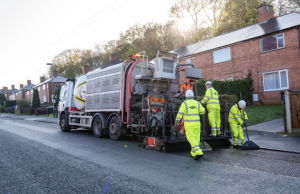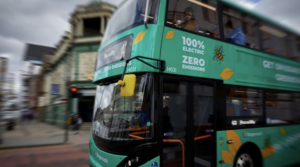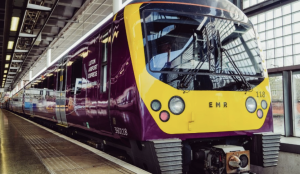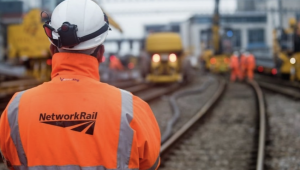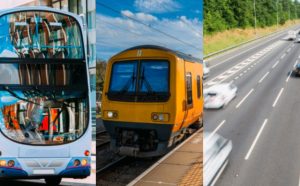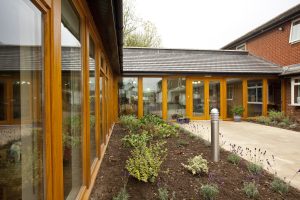Government urged to power up 4,300 jobs with Midland Mainline electrification
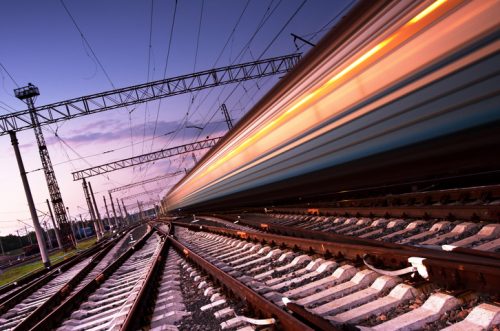
Regional leaders, MPs and the biggest business organisation in the East Midlands have joined forces to urge government to power up plans to electrify more sections of the Midland Mainline railway.
They say that more than 4,000 skilled jobs could be created if government signs off plans to electrify parts of the line which go north of South Wigston in Leicestershire.
Industry experts say the most cost-effective way to deliver on those plans will be to let the firms and workers who have been building electrification infrastructure further south know that more work is on the way.
Midland Mainline is the main rail link between the East Midlands region, South Yorkshire and London, carrying more than nine million passengers a year and bringing annual economic benefits of £450m.
Unlike the East and West Coast main lines, it is not fully electrified, meaning trains must switch to polluting diesel power when they go north past South Wigston in Leicestershire and on to Leicester, Derby, Nottingham, Chesterfield and Sheffield.
Ahead of the 30 October Budget, Transport for East Midlands (TfEM) has revealed analysis showing that alongside the transport and environmental benefits, electrification of the line up to Sheffield could create 4,300 new jobs, including skilled occupations, and more than 100 apprenticeships.
The analysis also shows that over the remaining course of the project, electrification of the Midland Mainline could generate an additional £61m in economic value from jobs created in the East Midlands, and nearly £18m in social value benefit.
Sir Peter Soulsby, the chair of TfEM, said: “After the cancellation of the eastern leg of HS2, it’s vital that the East Midlands’ existing rail infrastructure is improved and upgraded to support rising passenger demand and the need for economic growth.
“One of the critical components of getting electrification done cost-effectively is to ensure we’ve got a workforce that has the skills and capacity to deliver. I’m urging government to signal progress on the next phase beyond South Wigston so that we can keep the workforce together and develop the skills we’ll need for future sections to be electrified.”
The elected Mayor of the East Midlands, Claire Ward, said the jobs electrification will create are vital to the region achieving its growth ambitions.
She added: “The electrification of the Midland Mainline is a vital step in unlocking the full economic potential of our region.
“By electrifying the line, we not only honour our region’s rich rail heritage but also create thousands of skilled jobs and apprenticeships, driving investment and improving connectivity for towns and cities across the East Midlands.
“This is a chance for the government to power up our economy, attract new businesses, and ensure a greener, more efficient transport network for generations to come.”
MPs and businesses are also supporting TfEM’s call for government to provide certainty.
Catherine Atkinson MP, whose Derby North constituency is a national centre for rail engineering, said: “For generations, Derby has been a rail industry leader and is the proud home of Great British Railways.
“Investment in our regional rail infrastructure will solidify that legacy for future generations to come, support our economic growth, whilst also retaining the rich skills we already have in the city’s workforce right now.
“This is an opportunity to signal a bright future for the rail sector, both at home and internationally, which is essential in protecting our supply chains, nurturing innovation and keeping recruitment and retention of this highly skilled workforce on track.”
One of the businesses involved in Midland Mainline electrification is Derby-based Overhead Line Engineering (OLE), headquartered at Pride Park.
Keith Orgill, owner-director of the business, said “OLE is one of very few East Midlands businesses capable of carrying out electrification design. We employ 15 engineers and we have successfully delivered electrification of the Midland Main Line up to South Wigston.
“The delay to the procurement of the next stage of the electrification programme has created a hiatus in design work. This has already had an impact on design companies based in the East Midlands and the longer confirmation is delayed the harder it will be to keep the specialist workforce together.
“Should it be lost, it will be really difficult to re-establish this capability in the region. However, if government commits now, we can recruit, train, prepare and deliver cost-effectively.”
James Naish is MP for Rushcliffe, which includes East Midlands Parkway on the Midland Mainline. He said: “After the cancellation of HS2, it is important that connectivity to the region isn’t forgotten and with electrification of the Midland Mainline, the East Midlands Parkway station will finally act as a proper gateway to the area.
“We know that there’s the prospect of high-quality jobs nearby on the Ratcliffe-on-Soar power station site, as well as fantastic and growing businesses and universities within a short journey, so I’m really pleased that we’re speaking as one on the importance of this project.”
East Midlands Chamber of Commerce has identified transport infrastructure as one of its key asks of government in the Autumn Budget.
Richard Blackmore, the Chamber’s director of policy & insight, said: “Full electrification of the Midland Mainline is long overdue. We represent more than 4000 businesses across the region, and they tell us regularly about the challenges they face from inadequate rail and road links.
“Rail engineering is also an important part of the regional economy and an investment in improved connectivity is going to pay back directly in skilled jobs, greater productivity and increased growth. Government needs to commit to give the industry the certainty it requires to deliver.”
Tom Newman-Taylor, the CEO of East Midlands Freeport has also joined calls for greater investment in the region’s transport infrastructure.
He said: “East Midlands Freeport is the biggest growth opportunity in the region, with the potential to create 28,000 jobs and deliver an additional £9bn in economic output.
“The Midland Mainline runs directly alongside our Ratcliffe-on-Soar Power Station investment site, with a station at East Midlands Parkway. If we are to unlock the region’s full potential, then we need to see investment in both upgraded rail and road infrastructure.
“Without this, transport could become a major barrier to growth and prevent us from realising these ambitious opportunities.”

